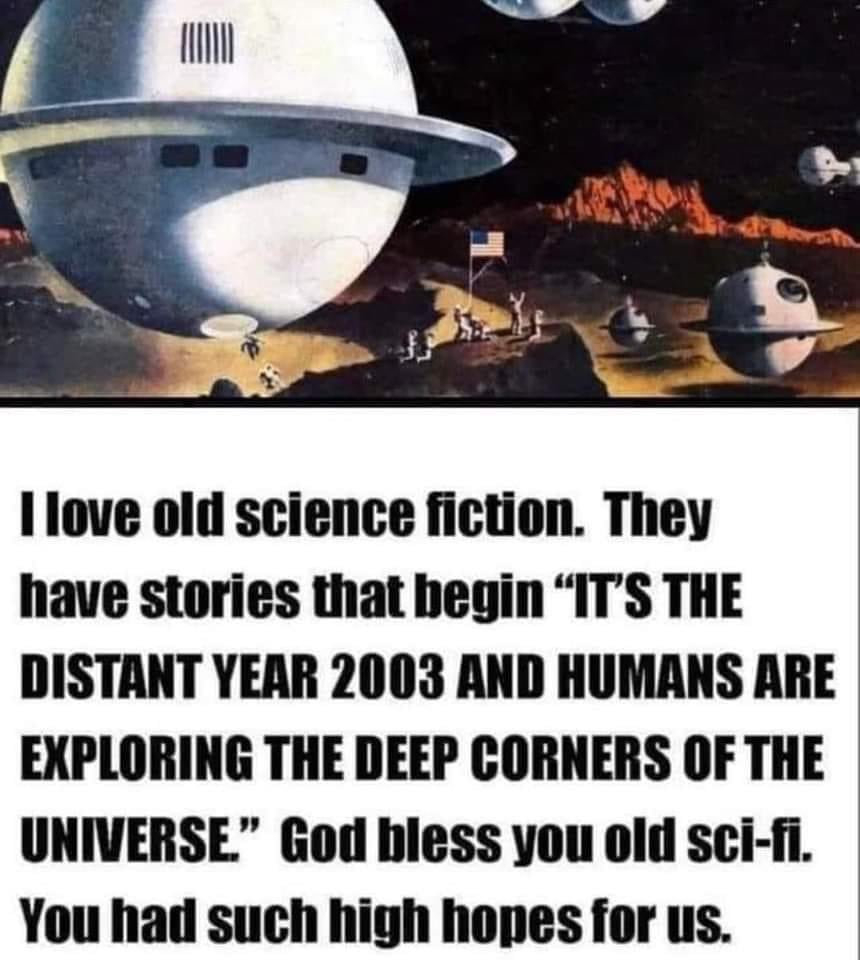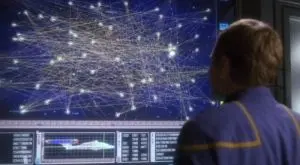There are a myriad of reasons we are on the shitty timeline, but a non-insignificant one to me is how terrible classic sci-fi writers were at writing humans rather than planks with faces drawn on them that periodically state the author’s views on something. The focus of sci-fi on massive space operations and colonization of other planets from the beginning was warped by a dis-interest from sci-fi writers in the positive potentialities within the human psyche that are outside the grasp of cynical structures of power and control, the part of ourselves that just wants to tend a garden in their backyard and nothing more.
I think this has lead to very hollow visions of the future that were well suited to becoming the basis for people like Elon Musk’s world view. Sci-fi looked to the stars and tried to see into the future while ignoring the one thing we can count on about the future, humans will still be humans.
(I know this is a generalization and isn’t true as a rule)

